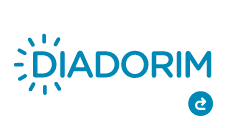Panorama brasileiro na relação entre ciência e conservação de acervos
Palabras clave:
Artes - estudo e ensino, Patrimônio cultural, Conservação e restauraçãoResumen
O artigo aborda as relações entre as práticas científicas e a conservação de acervos no contexto nacional. Discute o processo de construção e transformação do papel da ciência na área de preservação do patrimônio cultural assim como o uso de laboratórios como base de sustentação de atividades específicas de restauração e a necessidade de formação e qualificação profissional para atender à demanda de projetos que visam à organização e à conservação de acervos.
Descargas
Referencias
BERDUCOU, M.C.(Org.). La conservation en archéologie. Paris: Masson, 1990.
BOUCHENAKI, Mounir. International conservation organizations. The GCI Newsletter, v. 14, n. 1, Spring 1999, s.p.
BRANDI, Cesare. Theory of restoration. In: Historical and philosophical issues in the conservation cultural heritage. Los Angeles: GCI, 1996. p. 230-5; 330-342; 377-393.
COREMANS, Paul. Organización de un servicio nacional de preservación de los bienes culturales. In: Boletín da Unesco, Paris, 1964.
EPISCON. European Ph-D in Science Conservation. Disponível em: http://www.episcon.scienze.unibo.it/episcon. Acesso em 17 de abril de 2006.
EU-ARTECH. Access, research and technology for the conservation of European cultural heritage. Disponível em: http://www.eu-artech.org/. Acesso em 17 de abril de 2006.
FRONER, Yacy-Ara. Os domínios da memória: um estudo sobre a construção do pensamento preservacionista nos campi da museologia, arqueologia e ciência da conservação. Tese (doutorado), Faculdade de Filosofia, Letras e Ciências Humanas da Universidade de São Paulo, 2001.
GCI. About GCI Science. Disponível em: http://www.getty.edu/ conservation. Acesso em 17 de abril de 2006.
GUTIERREZ, Ramon. História, memória e comunidade. In: O direito à memória: patrimônio histórico e cidadania. São Paulo: SMC/DPH, 1992, p. 121-128.
ICCROM. Documento di Bologna, 1999. Disponível em: http://www. episcon.scienze.unibo.it/episcon/bologna-document. Acesso em 17 de abril de 2006.
ICOM. Working groups. Disponível em: http://icom-cc.icom.museum/ WorkingGroups/. Acesso em 17 de abril de 2006.
ICOMOS. International Scientific Committes. Disponível em: http://www.icomos.org. Acesso em 17 de abril de 2006.
LEVIN, Jeffrey. The future of conservation. The GCI Newsletter, v. 6, n. 1, Fall 1999.
MATERO, Frank. Ethics and policy in conservation. The GCI Newsletter, v. 15, n. 1, Spring 2000.
PHILIPPOT, Paul. Historic preservation: philosophy, criteria, guidelines. In: Historical and philosophical issues in the conservation cultural heritage. Los Angeles: GCI, 1996, p. 268-274 (1.ed. 1972).
PHILIPPOT, Paul. Restoration from the perspective of the humanities. In: Historical and philosophical issues in the conservation cultural heritage. Los Angeles: GCI, 1996, p. 216-229.
SMITHSONIAN MUSEUM INSTITUTE. Conservation and technical studies. Disponível em: http://www.si.edu/mci/english/research/index.html. Acesso em 17 de abril de 2006.
SOUZA, Luiz Antonio Cruz. A importância da conservação preventiva. Revista da Biblioteca Mário de Andrade, v. 52, p. 87-93, jan.1994.
THOMPSON, J. M. A. The manual of curatorship: a guide to museum practice. Oxford: Butterworth-Heinemann, 1992.
THOMSON, G. Climate control policy. In: Icom, Zagreb, 1978.
THOMSON, G. The museum environment. London: Butterworths, 1982.
Descargas
Publicado
Número
Sección
Licencia

Esta obra está bajo una licencia internacional Creative Commons Atribución-NoComercial 4.0.
Los autores que publican en esta revista aceptan los siguientes términos:
- Los autores conservan los derechos de autor y conceden a la revista el derecho de primera publicación, con el trabajo bajo la Licencia Creative Commons Attribution-NonCommercial 4.0 International License que permite compartir el trabajo con reconocimiento de autoría y publicación inicial en esta revista;
- Los autores pueden celebrar contratos adicionales por separado, para la distribución no exclusiva de la versión del trabajo publicado en esta revista (por ejemplo, publicar en un repositorio institucional o como capítulo de un libro), con reconocimiento de autoría y publicación inicial en esta revista.
- Se permite y anima a los autores a publicar y distribuir su trabajo en línea (por ejemplo, en repositorios institucionales o en su página personal) en cualquier momento antes o durante el proceso editorial, ya que esto puede generar cambios productivos, así como aumentar el impacto y la cita del trabajo publicado.
- Es responsabilidad de los autores obtener permiso escrito para utilizar en sus artículos materiales protegidos por la ley de derechos de autor. La Revista PÓS no se hace responsable de las violaciones de los derechos de autor de sus colaboradores.












